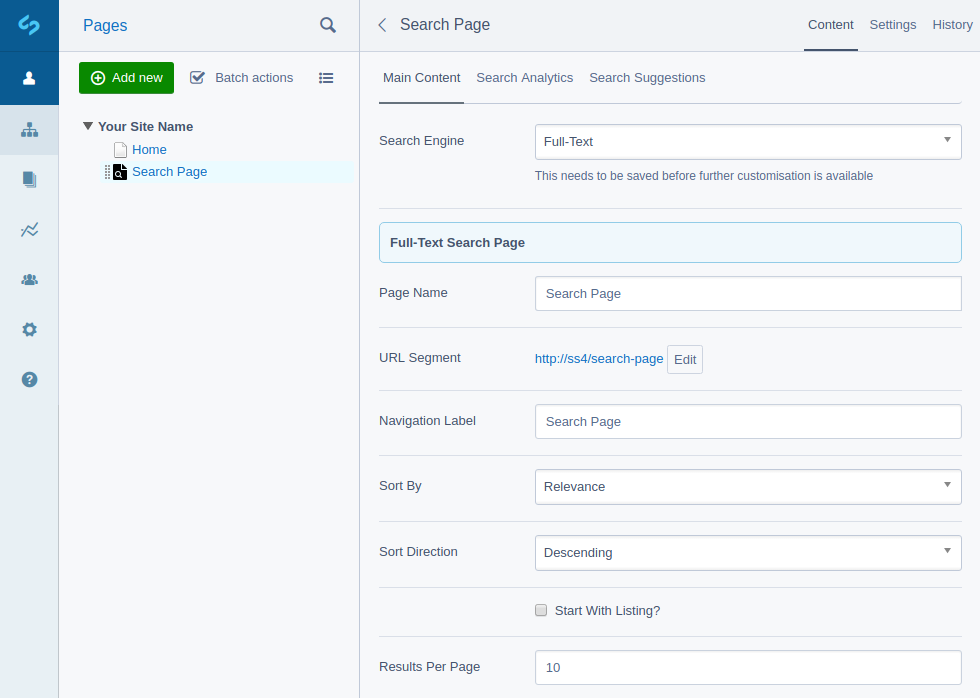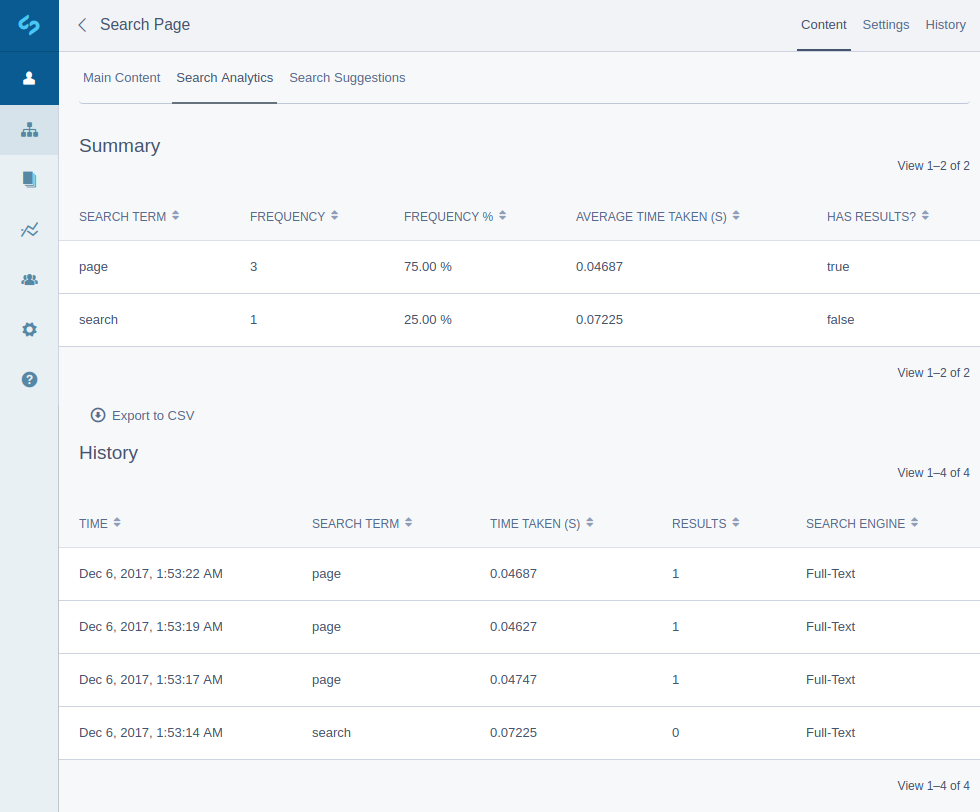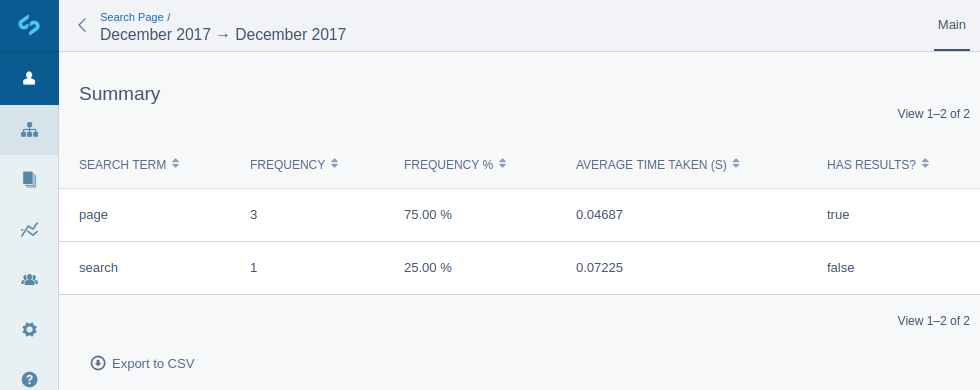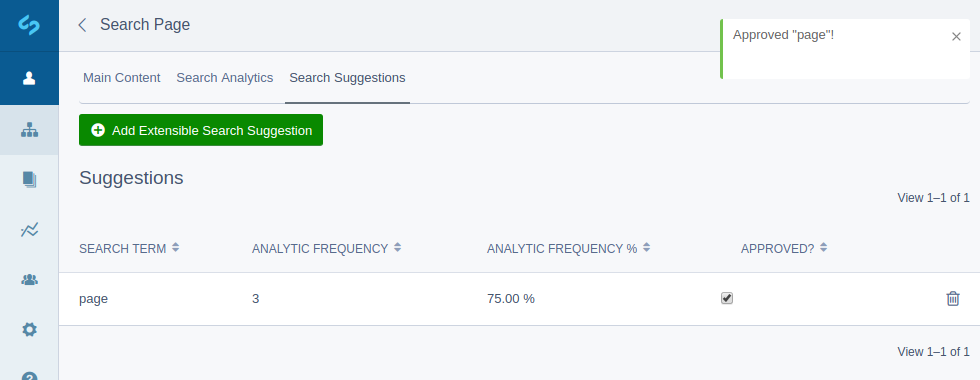The current release is 4.1.4
This module allows user customisation and developer extension of a search page instance, including analytics and suggestions.
- SilverStripe 3.1 → 4.0
- Place the module under your root project directory.
- Configure the search engine and search form YAML.
/dev/build- Configure the extensible search page.
This is automatically created, and allows configuration for search based on a search engine (more below).
The extensible search page is designed to use full-text search out of the box, while providing support for custom search engine implementations (elastic search for example).
SilverStripe\ORM\Search\FulltextSearchable:
searchable_classes:
- 'SilverStripe\CMS\Model\SiteTree'
SilverStripe\CMS\Model\SiteTree:
create_table_options:
MySQLDatabase: 'ENGINE=MyISAM'
extensions:
- "SilverStripe\\ORM\\Search\\FulltextSearchable('Title', 'MenuTitle', 'Content', 'MetaDescription')"When considering the search engine to use, full-text has some important limitations. This configuration can also be applied to File, however, unfortunately it does not support further customisation.
The following is an example configuration, where ElasticSearch extends the abstract CustomSearchEngine class:
nglasl\extensible\ExtensibleSearchPage:
custom_search_engines:
nglasl\extensible\ElasticSearch: 'Elastic'PageController:
extensions:
- 'nglasl\extensible\ExtensibleSearchExtension'Using this, to display the search form that users interact with (from your template):
$SearchFormThese are important to help determine either popular content on your site, or whether content is difficult for users to locate. They're automatically enabled out of the box, however, can be disabled using the following:
nglasl\extensible\ExtensibleSearch:
enable_analytics: falseWhen triggering a search, appending ?analytics=false to the URL will bypass the search analytics. This is fantastic for debugging.
Depending on your search traffic, /dev/tasks/ExtensibleSearchArchiveTask may be used to archive past search analytics, for each search page. It would be recommended to trigger this on a schedule where possible.
These are most effective alongside the search analytics (in which case they're automatically populated), and can be used to display either popular searches on your site, or search form autocomplete options. They're automatically enabled out of the box, however, can be disabled using the following:
nglasl\extensible\ExtensibleSearchSuggestion:
enable_suggestions: falseTo enable autocomplete using the approved search suggestions..
Requirements::javascript('nglasl/silverstripe-extensible-search: client/javascript/extensible-search-suggestions.js');
// OPTIONAL.
Requirements::css('jquery-ui.min.css');
Requirements::javascript('jquery-ui.min.js');Custom search engine specific templates may be defined for your search results. These are just two examples:
ElasticSearch_results.ss or Page_results.ss
- The custom search engine implementation has changed, and no longer uses extensions (see above).
Nathan Glasl, [email protected]




